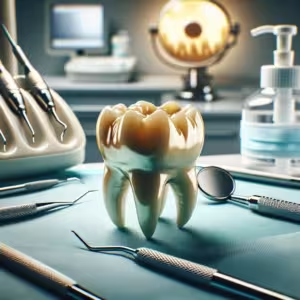Understanding Senior Dental Crowns
Understanding Senior Dental Crowns: A Brief Guide
Dental crowns are essential restorations that cover damaged or decayed teeth, providing strength and improving appearance. For seniors, they play a vital role in maintaining oral health, enhancing chewing ability and preserving tooth structure.
Crowns come in various materials, including porcelain, metal, and ceramic, each offering unique benefits. Porcelain crowns blend seamlessly with natural teeth, while metal crowns are highly durable.
Types of crowns include temporary, permanent, and implant-supported, tailored to individual needs. For seniors, investing in dental crowns can greatly enhance quality of life, ensuring comfort and confidence in their smiles. Regular dental check-ups are crucial to determine when crowns may be necessary.
Benefits of Dental Crowns for Seniors
Benefits of Dental Crowns for Seniors
Dental crowns offer numerous advantages for seniors, addressing both aesthetic concerns and functional needs. As individuals age, their teeth undergo significant wear and tear, making the use of crowns a beneficial option. Here are some specific advantages that dental crowns provide to the senior population:
- Improved Oral Health
Dental crowns play a crucial role in preserving the integrity of existing teeth. For seniors who may experience tooth decay or damage from grinding, a crown can protect a weakened tooth from further deterioration. By covering the entire tooth, crowns provide a barrier against bacteria and reduce the likelihood of additional cavities. This preventive measure can lead to healthier teeth and gums, significantly reducing the risk of periodontal disease, which is prevalent among older adults.
- Enhanced Aesthetics
Aging can affect the appearance of teeth, leading to discoloration, chips, or fractures. For seniors, maintaining a bright and attractive smile is essential for self-esteem and social interaction. Porcelain crowns, in particular, are designed to closely mimic the color and translucency of natural teeth, providing a seamless aesthetic solution. The ability to restore the appearance of a damaged tooth not only boosts confidence but also encourages seniors to engage more actively in social settings, enhancing their overall quality of life.
- Restored Functionality
Tooth loss or damage can severely impact a senior’s ability to chew and speak. Dental crowns restore the original shape and function of a tooth, allowing for improved chewing efficiency. This restoration is particularly significant for seniors who may already face dietary restrictions due to health concerns. With dental crowns, they can enjoy a wider variety of foods, which is essential for maintaining proper nutrition. Additionally, restored functionality aids in clear speech, which can prevent feelings of embarrassment or social withdrawal.
- Durability and Longevity
Crowns are designed to withstand the pressures of biting and chewing, making them an excellent long-term solution for seniors. Metal crowns, for example, offer exceptional strength and can last for many years with proper care. Even porcelain and ceramic crowns, while slightly less durable, can provide decades of service if maintained correctly. This longevity means that seniors can enjoy the benefits of their crowns without frequent replacements, which can be especially important for those on fixed incomes.
- Preservation of Tooth Structure
Dental crowns help preserve the overall structure of the tooth, which is particularly crucial for seniors. When a tooth is damaged or decayed, it may require extraction if not treated promptly. Crowns allow for the restoration of the tooth rather than removal, preserving the natural tooth structure. This is significant because tooth loss can lead to misalignment of surrounding teeth, further complicating oral health. By maintaining as much of the natural tooth as possible, dental crowns contribute to long-term oral stability.
- Reduced Sensitivity and Discomfort
Many seniors experience tooth sensitivity due to enamel erosion or gum recession. Dental crowns can cover exposed areas of the tooth, effectively shielding sensitive dentin and reducing discomfort during eating or drinking. This protective measure not only alleviates pain but also encourages seniors to maintain a varied diet, which is essential for overall health.
- Customization for Individual Needs
Crowns are highly customizable, allowing dental professionals to create solutions tailored to the unique needs of each senior patient. Factors such as the location of the tooth, aesthetic preferences, and existing dental conditions are considered when selecting the type of crown. This personalized approach ensures that seniors receive the most appropriate and effective treatment, maximizing the benefits of their dental crowns.
- Support for Dental Implants
For seniors who have experienced tooth loss, dental crowns are often used in conjunction with dental implants, providing a complete restoration solution. After the implant is placed, a crown is attached to create a natural-looking and fully functional replacement tooth. This combination not only restores the appearance of a smile but also enhances oral health by preventing bone loss in the jaw, which can occur following tooth loss.
In conclusion, dental crowns serve as a vital dental solution for seniors, addressing a range of concerns from aesthetics to functionality. With their ability to improve oral health, restore confidence, and enhance the overall quality of life, crowns represent an essential investment in the dental care of older adults. Regular consultations with dental professionals can ensure that seniors receive timely interventions, maximizing the benefits of dental crowns in their oral health journey.
Choosing the Right Dental Crown
Choosing the Right Dental Crown: Key Criteria for Seniors
When considering a dental crown, seniors should take into account several important factors to ensure the selected option meets their individual oral health needs and lifestyle. Here are the key criteria to evaluate when selecting the most suitable type of dental crown:
- Durability and Longevity
Durability is a crucial factor for seniors, particularly because they may have specific needs related to their overall health and dental conditions. Metal crowns, such as those made from gold or other alloys, are renowned for their strength and longevity. They can withstand the significant forces of chewing and are less likely to chip or crack compared to other materials. Porcelain and ceramic crowns, while aesthetically pleasing and more natural-looking, may not offer the same level of durability. For those who are heavy grinders or have a history of dental issues, a metal crown may be the best choice.
- Aesthetic Considerations
For many seniors, maintaining an attractive smile is important for confidence and social interactions. Porcelain and ceramic crowns are excellent options for front teeth or visible areas due to their natural appearance, closely mimicking the translucency and color of natural teeth. Seniors should consider where the crown will be placed in their mouth and how important aesthetics are in that area. For back teeth, where aesthetics may be less critical, a more durable metal crown might be preferable.
- Cost and Insurance Coverage
The cost of dental crowns can vary widely depending on the material used and the dental practice. Metal crowns are typically less expensive than porcelain or ceramic options. However, some insurance plans may cover a larger portion of the cost for specific types of crowns. Seniors should consult with their dental provider and insurance company to understand the financial implications and seek options that fit their budget while still providing the necessary quality of care.
- Individual Dental Conditions
Seniors often face unique dental challenges, including weakened teeth, gum disease, or limited jawbone density. Before selecting a crown, it’s vital to assess individual dental conditions. For instance, patients with significant tooth decay or root problems may require a specific type of crown or additional treatment before a crown can be placed. Consulting with a dentist can help seniors understand their specific conditions and identify the most appropriate crown type for their needs.
- Ease of Maintenance
Dental crowns require proper care to ensure longevity. Seniors should consider how easy it will be to maintain their chosen crown. Metal crowns are generally more resistant to staining and wear, whereas porcelain crowns may require more attention to avoid chips and discoloration. Additionally, seniors should think about their oral hygiene habits and whether they can commit to the necessary routine to maintain the crown’s integrity and appearance.
- Comfort and Fit
The comfort and fit of a dental crown are paramount, especially for seniors who may have sensitive teeth or gums. It’s essential to work with a dentist who takes the time to ensure that the crown fits well and feels natural in the mouth. A poorly fitting crown can lead to discomfort, difficulty chewing, and other complications, further impacting the overall quality of life.
- Time Commitment
Seniors should also consider the time commitment involved in getting a dental crown. Some crowns can be made in a single visit using advanced technology, while others may require multiple appointments and a waiting period for the crown to be manufactured. For those with mobility issues or transportation challenges, a quicker option may be preferable to reduce the number of visits needed.
- Recommendations and Experiences
Finally, seniors can benefit from seeking recommendations from their dentist, friends, or family members who have experience with dental crowns. Understanding others’ experiences with different types of crowns can provide valuable insights and help in making an informed decision.
By considering these criteria—durability, aesthetics, cost, individual dental conditions, ease of maintenance, comfort, time commitment, and personal recommendations—seniors can make a well-informed choice regarding their dental crowns. Ultimately, the right crown can significantly enhance their oral health, comfort, and confidence, leading to a better quality of life. Regular consultations with a dental professional will ensure that the selected crown aligns with their ongoing dental needs.
Finding a Local Dentist in Ashburn, VA
Finding a Local Dentist in Ashburn, VA: A Guide for Seniors
When seeking a reputable dentist in Ashburn, VA, who specializes in dental crowns, seniors have several avenues to explore. Here are essential tips for finding a suitable dental practice:
- Ask for Recommendations: Begin your search by asking friends, family, or caregivers for recommendations. Personal experiences can provide valuable insights into a dentist’s quality of care and service.
- Check Professional Credentials: Look for dentists who are members of recognized professional organizations, such as the American Dental Association (ADA) or the Virginia Dental Association (VDA). These affiliations often indicate ongoing education and adherence to industry standards. Verify the dentist’s educational background and any specialized training in restorative dentistry, particularly in crown procedures.
- Search Online Directories: Utilize online resources like Healthgrades, Zocdoc, or Yelp to find dentists in Ashburn. These platforms often provide helpful filters, allowing you to search specifically for dental practices that focus on crowns.
- Read Patient Reviews: Patient reviews can offer insights into a dentist’s practice. Look for feedback regarding the quality of care, waiting times, office staff professionalism, and overall patient satisfaction. Keep an eye out for comments on how the dentist handles treatments related to crowns, especially for seniors.
- Assess Office Environment: Once you have a list of potential dentists, consider visiting their offices. A welcoming and clean environment is crucial for a positive dental experience. Pay attention to the staff’s demeanor and how comfortable you feel in the setting, as this can greatly affect overall satisfaction.
- Inquire About Technology and Techniques: Modern dental practices often employ advanced technology, which can enhance the precision and comfort of crown procedures. Ask about the types of materials used for crowns and whether the dentist offers digital imaging for treatment planning.
- Schedule a Consultation: Many dentists offer initial consultations, which can be a great opportunity to assess their approach to treatment. Prepare a list of questions regarding your specific needs for crowns and gauge the dentist’s willingness to address your concerns.
- Evaluate Insurance and Payment Options: Check if the dental practice accepts your insurance plan, as this can greatly influence your treatment costs. Additionally, inquire about payment plans or financing options, particularly if you anticipate needing multiple crowns or other restorative work.
By following these steps, seniors can confidently locate a reputable dentist in Ashburn, VA, who specializes in dental crowns. Ensuring that you choose a qualified professional will not only support your dental health but also enhance your overall quality of life.
Preparing for a Dental Crown Procedure
Preparing for a Dental Crown Procedure: What Seniors Can Expect
When preparing for a dental crown procedure, it’s essential to understand the steps involved and what to expect on the day of the appointment. The process can be broken down into several stages: pre-procedure preparation, the procedure itself, and post-procedure care. By knowing what to expect at each stage, seniors can feel more at ease and ensure a smoother experience.
Pre-Procedure Preparation
- Consultation and Planning: Before the procedure, seniors should have a thorough consultation with their dentist. This appointment will include a discussion of the specific type of crown needed, as well as the materials best suited for the individual’s dental health and aesthetic preferences. X-rays may be taken to assess the tooth’s condition and surrounding structure.
- Medication Review: It’s important to inform the dental team about any medications currently being taken, especially blood thinners or medications for chronic conditions. This information will help the dentist manage any potential complications during the procedure.
- Oral Hygiene: Maintaining good oral hygiene in the days leading up to the appointment is crucial. Seniors should brush and floss daily to minimize the risk of infection and ensure the tooth is as clean as possible before the crown is placed.
- Transportation and Assistance: Depending on the type of anesthesia used during the procedure, seniors may need assistance getting to and from the dental office. It’s advisable to arrange for a family member or friend to accompany them, especially if sedation is involved.
The Dental Crown Procedure
- Anesthesia: Upon arrival at the dental office, the dentist will begin by applying a local anesthetic to the area surrounding the tooth. This will numb the area and minimize discomfort during the procedure.
- Tooth Preparation: The dentist will remove any decay and shape the tooth to ensure a proper fit for the crown. In some cases, additional material may be used to build up a tooth that is significantly damaged. This preparation helps create a stable base for the crown.
- Impressions: Once the tooth is prepared, the dentist will take impressions of the tooth and surrounding teeth. These impressions can be either traditional molds or digital scans, which will be used to create a custom crown that fits securely. This step is essential for ensuring comfort and functionality.
- Temporary Crown: If the permanent crown will take time to fabricate, the dentist will place a temporary crown to protect the tooth while waiting. Seniors should be made aware that temporary crowns may not be as durable as permanent crowns and should be handled with care.
- Crown Placement: Once the permanent crown is ready, a follow-up appointment will be scheduled. During this visit, the dentist will remove the temporary crown and place the permanent one, making any necessary adjustments for fit and bite.
Post-Procedure Care
- Pain Management: After the procedure, some discomfort may occur as the anesthesia wears off. Over-the-counter pain relievers, such as acetaminophen or ibuprofen, can help manage this pain. Seniors should consult with their dentist if pain persists or worsens.
- Dietary Adjustments: For the first few days following the procedure, it’s advisable to stick to soft foods and avoid hard, sticky, or chewy items that may put stress on the newly placed crown. Foods like yogurt, mashed potatoes, and smoothies are good options during the recovery period.
- Oral Hygiene: Maintaining excellent oral hygiene is vital following the placement of a crown. Seniors should continue to brush and floss regularly, being careful around the crown to avoid dislodging it. A soft-bristle toothbrush may be gentler on sensitive areas.
- Follow-Up Appointments: Regular follow-up appointments with the dentist are crucial for monitoring the crown’s fit and the overall health of the surrounding gums and teeth. Seniors should adhere to the schedule recommended by their dentist for optimal results.
- Watch for Issues: If any unusual symptoms arise, such as excessive pain, swelling, or sensitivity, seniors should contact their dentist promptly. Early intervention can prevent complications and ensure the longevity of the crown.
By understanding the entire process—from preparation to recovery—seniors can feel more confident and prepared for their dental crown procedure. With proper care and attention, the benefits of a dental crown can significantly enhance oral health and overall quality of life.
Aftercare and Maintenance of Dental Crowns
Aftercare and Maintenance of Dental Crowns
To ensure the longevity of dental crowns, seniors should follow essential aftercare tips and maintenance practices. First, maintain excellent oral hygiene by brushing twice daily with a soft-bristled toothbrush and fluoride toothpaste, and flossing regularly to prevent plaque buildup around the crown. Additionally, use an antibacterial mouthwash to further reduce the risk of gum disease.
Routine dental check-ups are vital; schedule visits at least twice a year for professional cleanings and evaluations. During these appointments, your dentist can assess the integrity of the crowns and address any concerns early. Avoid hard or sticky foods that may damage the crowns or dislodge them. By following these practices, seniors can enjoy their dental crowns for many years, ensuring optimal oral health and function.





